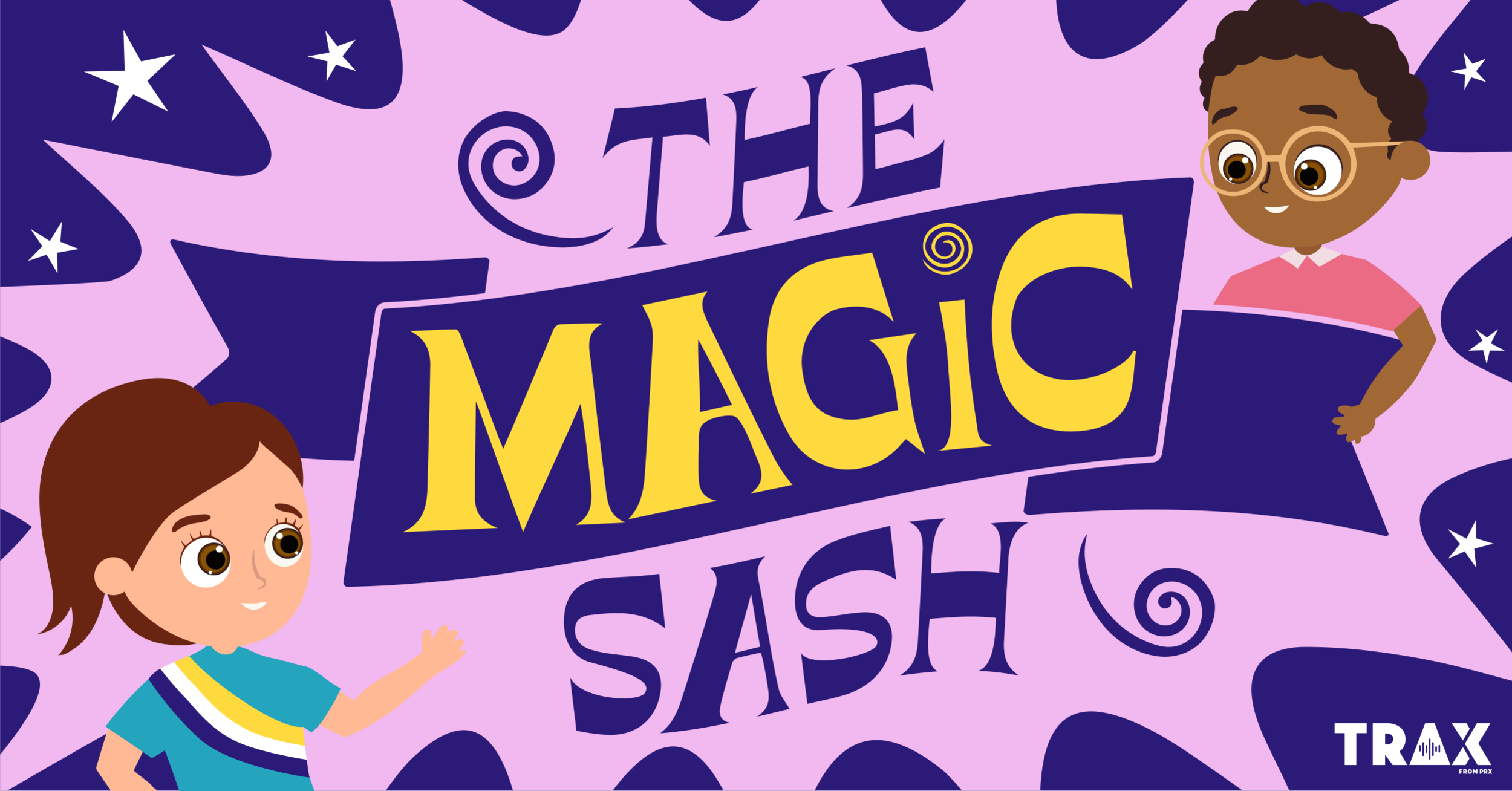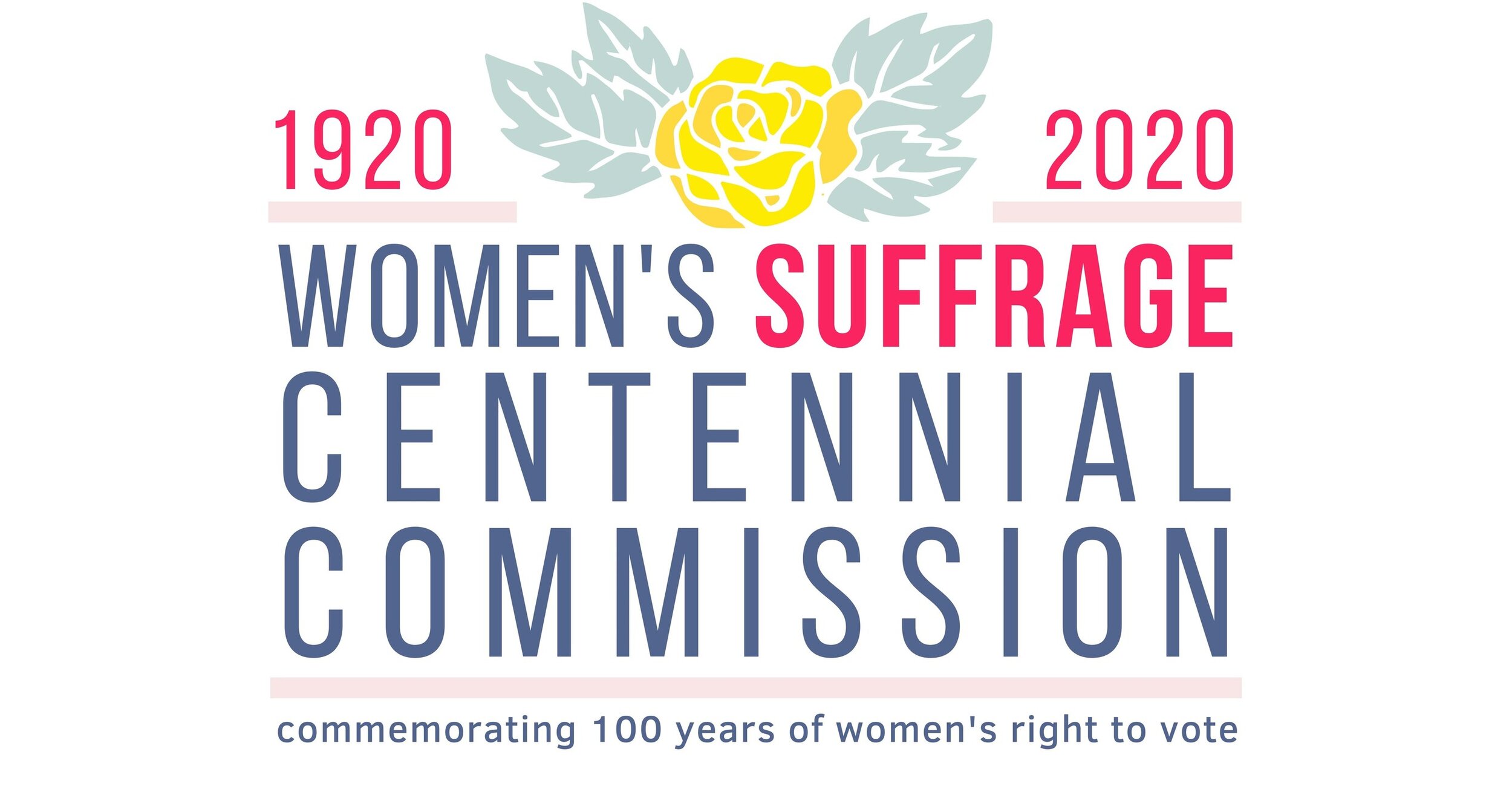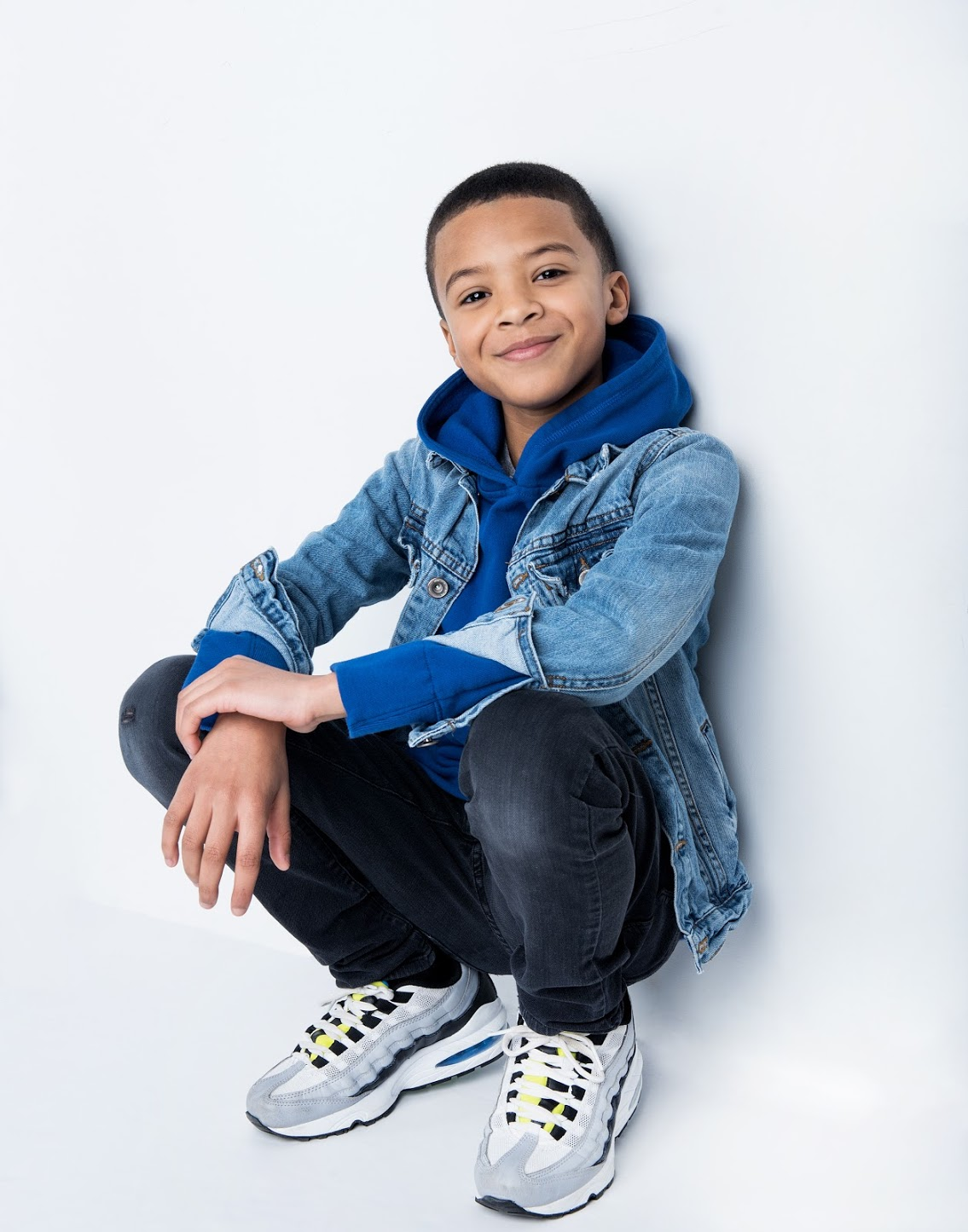Celebrating 100 Years of Women Voting with 'The Magic Sash'
One-hundred years.
That’s how long women in the United States have had the ability to cast their ballot at the polls for the officials they believe in and on the topics that matter to them. This August, the U.S. is commemorating the centennial anniversary of the passage and ratification of the 19th Amendment, the bill that secured women’s right to vote in this country. To celebrate this major milestone in American history, the Women’s Suffrage Centennial Commission and the National Park Service are pulling out all of the stops. Included are two podcasts that tell the story of the women’s suffrage movement, hosted by an ensemble of today’s most inspiring and talented women. Both podcasts are produced by PRX, and one of them is coming right here to TRAX!
We’re thrilled to introduce “The Magic Sash,” a journey back in time hosted by gold medal gymnast and advocate Aly Raisman, co-produced by PRX and Gen-Z Media. Join Lotty and Isaiah, two very modern fifth graders as they meet iconic heroes of the movement for women’s right to vote and experience big moments in women’s suffrage first-hand. They’ll learn that what women (and men) fought for — women’s full political equality — isn’t dusty history at all.
We caught up with Anna Laymon, Executive Director of the Women’s Suffrage Centennial Commission, and Genevieve Sponsler, Executive Producer of “The Magic Sash” at PRX, to learn how “The Magic Sash” came to be and why it’s important for teens and preteens to know this story:
What is “The Magic Sash”?
Anna: “The Magic Sash” is a historical fiction adventure for tweens featuring an 11-year-old girl and boy who journey back in time to experience key moments in women’s suffrage history, like the 1848 Seneca Falls Convention and the 1913 suffrage parade, and meet iconic heroes of the movement, like Susan B. Anthony, Frederick Douglass, and Harriet Tubman.
Genevieve: What’s so great about Sash, I think, is that the writers and our co-producers at Gen-Z Media ran with Anna’s idea; they added a boy, Isaiah, who goes back in time with Lotty. Which makes so much sense — because this should matter to all genders. And the characters meet abolitionists, too, as many suffragists were also fighting against slavery. This part of suffrage history is certainly something I didn’t learn in school; and the fight for civil and voting rights isn’t just an old story — the relevance to today is clear.
What’s the origin story of “The Magic Sash”?
Anna: When I was a kid (many, many years ago!), my family would listen to stories on cassette tape while we were in the car driving to school. The stories were full of life and always featured over-the-top characters, usually on some kind of whacky adventure. I wanted to recreate that feeling in “The Magic Sash” and bring the history of this movement for equality to tweens in a way that will educate and activate a new generation of leaders.
Who is “The Magic Sash” made for? What can listeners expect to hear?
Anna: “The Magic Sash” is for curious kids, thoughtful parents, hip grandparents, creative teachers, and lifelong learners. My hope is that families will sit down together to journey through time with Lotty and Isaiah and discover this incredible chapter in American history. Listeners should expect the unexpected and be prepared to laugh, think, and, most importantly, enjoy this seven-episode magical adventure!
Tell us about working with host Aly Raisman! What did she bring to the production?
Gold medal gymnast Aly Raisman
Anna: “The Magic Sash” is a story about courage, about being yourself, about overcoming obstacles, and about standing up for what’s right. Who better to tell that story than gold medal gymnast and advocate Aly Raisman?? I have a young daughter and a young son, and when they listen to “The Magic Sash,” I know they will feel inspired by Aly’s strength and passion.
The characters of Lotty and Isaiah are performed by two child actors, Katelyn Joseph and David Dotson. Since they also played a huge role in the podcast’s production, we wanted to hear from them too!
Katelyn and David, describe your experiences performing as Lotty and Isaiah. What did you learn?
Katelyn: Lotty was an easy character for me to relate to. We are both energetic and adventurous kids, and we love to explore. Also, Lotty’s relationship with her friend Isaiah is a lot like my relationship with my brother, so that was fun. I really enjoyed the story, because I never knew much about the history of women’s right to vote. As Lotty, I got to “meet” many of the important women who helped make it happen. So that was a super cool way to learn about it. I hope that listeners will have that same experience.
David: Performing the role of Isaiah was fun. I enjoy learning about history and this podcast puts a fun twist to learning a subject that some kids may find "boring." In one of the episodes, Isaiah had to use his weakness to get Lotty, Granny Flo, and himself out of a very tricky situation. Isaiah taught me that my flaws can also be seen as glows.
What’s your favorite story from the process of recording?
David: It was hard recording at home with my little brother and sister around. My mom and I had to go to my uncle's house (right next door) for a quiet place. We were hearing a lot of background noise so my mom walked around the tent we were using and found my brother hiding behind it!
Katelyn: Recording was a bit different because it was during the stay-at-home part of the pandemic. So we set up our own recording equipment at home, inside a make-shift recording booth lined with blankets and a foam mattress pad. We connected with the audio engineers through the internet so we could record with them live, which was really cool technology. It was all good until suddenly we heard all of these loud thumps through the ceiling. We found out that people were installing carpet in the unit above us! Thankfully, they were willing to pause the kicking and stomping part of the job for a little while so we could finish recording!
And another fun story.... Every time Lotty and Isaiah time travel to another place, they fly through space and time. It isn’t exactly a smooth ride - or a smooth landing. Since we recorded all of the episodes in one afternoon, that added up to a lot of time traveling for me! Toward the end, the director told me I could go off-script and do whatever I wanted for my time travel reactions. So I got to go a little bit crazy with my “Whooooaaa!” and “Owww!” and other exclamations, and that was a lot of fun!
What are some challenges you faced while creating the show?
Genevieve: Doing a podcast during a pandemic means making do with each actor recording from home. Usually, we’d be in a studio! As if on cue, when we started recording Aly for Sash, some loud construction began right next to her apartment —just like Katelyn experienced! It was almost comical. So we had to come up with a plan B recording spot. But hey — the suffragists were able to fight for the right to vote during a pandemic, so we can make a podcast.
What makes “The Magic Sash” different from other projects for this year’s Women’s Suffrage Centennial?
Anna: At the WSCC, we have dozens of projects — including another podcast for grown-ups, And Nothing Less, where hosts Rosario Dawson and Retta trace the untold stories of women’s fight for the vote — and partnerships to celebrate the women’s suffrage centennial. In fact, we were created by Congress to make sure that this important anniversary is commemorated nationwide. But out of all of our projects, “The Magic Sash” is my favorite! I remember when I was kid just how impactful and captivating a good story can be, and I am certain that “The Magic Sash” will engage and delight listeners of all ages.
Why did you choose to do a podcast to tell this story? What do you want listeners to take away from listening to “The Magic Sash”?
Anna: Podcasts are the perfect medium for storytelling! I want kids listening to “The Magic Sash” to use their imaginations, to learn, to have fun, and to feel inspired. Lotty, Isaiah, and the cast of characters in “The Magic Sash” will show us that if we work together, if we listen, if we do what’s right, we can make the world a better place, too.
What makes TRAX a good network for “The Magic Sash”?
Genevieve: I’ve been at PRX a looooong time; I’ve seen how impactful our content can be. I have emails from people thanking us for stories that helped them view others in a new, more empathetic way. Sash is the first show I’ve worked on for tweens. It fits right into TRAX from PRX; it shares the suffrage story but with more depth, filling in the blanks we didn’t learn in school and introduces us to complicated, flawed people, who are learning and have things to teach us.





